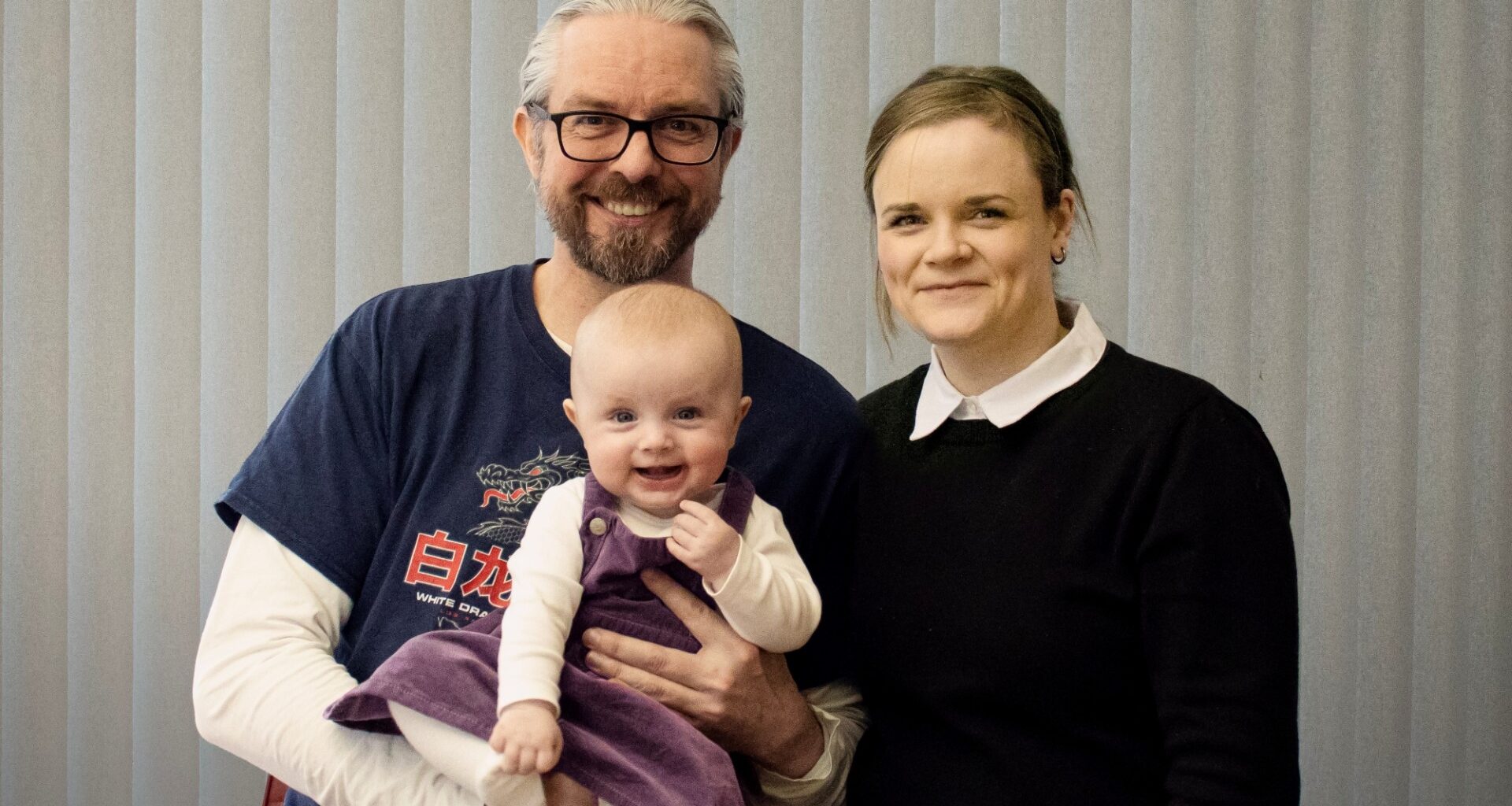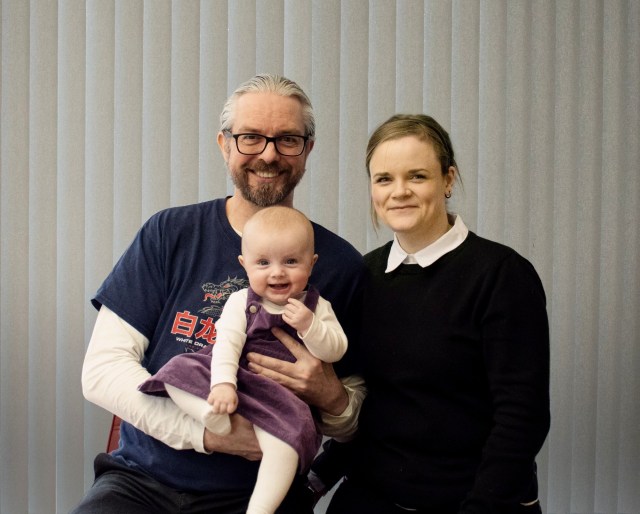For years, Tomas, 50, and Eva, 39, lived with the question that no hopeful parent wants to face: would it ever happen for us? Tomas already had a daughter from a previous relationship, but he and Eva always hoped to grow a family together.
The couple met in 2013, working at an animation studio in their homeland Iceland, and four years later they were trying for a baby. By the summer of 2018, the pair knew they needed help – which in the end would come from fertility experts in the UK.
Devastatingly, Eva experienced multiple miscarriages. By 2021, doctors recommended IVF. Their first round of treatment, in Iceland, proved unsuccessful and led to a chemical pregnancy.
Eva had always known about the history of Down’s syndrome in her family. The underlying cause was later identified as Robertsonian translocation, a genetic condition Eva unknowingly carried.
Doctors initially dismissed the idea that the condition could be inherited. “Not one, but every doctor we spoke to,” said Tomas. But things changed in 2022 when advice from Eva’s cousin prompted them to explore treatment overseas.
That led them to TFP Fertility Boston Place clinic in London. What drew them to the UK was pre-implantation genetic testing (PGT), a technique used during IVF to identify genetic disorders and reduce the risk of miscarriage, which isn’t available in Iceland but was now essential to their care.
Aware of the increased risk of miscarriage and risk of their child inheriting a genetic condition, PGT became a critical part of their treatment plan. Doctors explained that without it, Eva only had a 10% chance of a successful pregnancy. There was further frustration for the couple as four rounds of IVF passed with no embryos free of the extra chromosome.
“The help is out there if you know where to look for it, but the funding for PGT is not widely advertised in Iceland,” explains Tomas.” We were lucky to know someone who had gone through the same thing.”
With every cycle, the emotional toll grew. Eva says: “I was reaching 36, then 37, then 38. People kept telling me I was fine, but with every egg retrieval, it felt like time was against us.” As the months wore on, they questioned whether they could keep going, but Tomas felt it was important they did everything they could.
Tomas added: “It became increasingly physically and emotionally difficult with every failed attempt at a healthy embryo.”
Tomas admits pushing Eva quite hard during the last treatment, encouraging her to try one last time. “I knew that we needed to go as far as we possibly could go so that there wasn’t an iota of doubt in 10 years’ time that there was more we could have done,” he says.
The pair became accustomed to the arduous pattern of treatment, flights, hotel stays, appointments. It became a part of their lives.
“We found a hotel within 15 minutes of the clinic,” Tomas says. “It was a 45-minute drive from Heathrow and a three-hour flight from home. Travelling to TFP Boston Place Fertility offered us the least amount of disruption to our lives.”
It would take five IVF rounds, and 13 embryos sent for PGT before they finally had one healthy embryo to transfer. The fifth cycle yielded just one embryo free of the extra chromosome. Waiting for those results was agonising, but that single embryo changed everything.
In November 2024, their journey came full circle when Eva gave birth to their daughter, Isabella.
Tomas reflected on what it means to keep going through years of treatment, loss and uncertainty.
“To be fortunate enough to celebrate the birth of your child after a journey like ours is nothing short of magical,” Tomas says. “But it’s important to recognise that such a path often leaves behind an emotional residue, something that is not to be feared, but isn’t to be ignored either.”
He said: “This is an arduous process, made bearable by the dedication of healthcare professionals like those at TFP Boston Place. We were bruised and hurt when we came to TFP Fertility. I’d become somewhat jaded of the system but all of the staff there, not to lessen it, were lovely. We’d experienced the lack of communication, the lack of information, but they explained everything to us in a way that we could understand. We felt like we were treated with care.”
Eva says the support helped carry them through the hardest moments. “It took us a long time to get that healthy embryo, but we felt as though the staff were invested, and it meant as much to them as it did to us.”
For more information on Tomas and Eva’s story, visit: https://tfp-fertility.com/en-gb/our-success-stories/pre-implantation-genetic-testing-helped-us-have-our-baby-girlTomas and eva
Related

